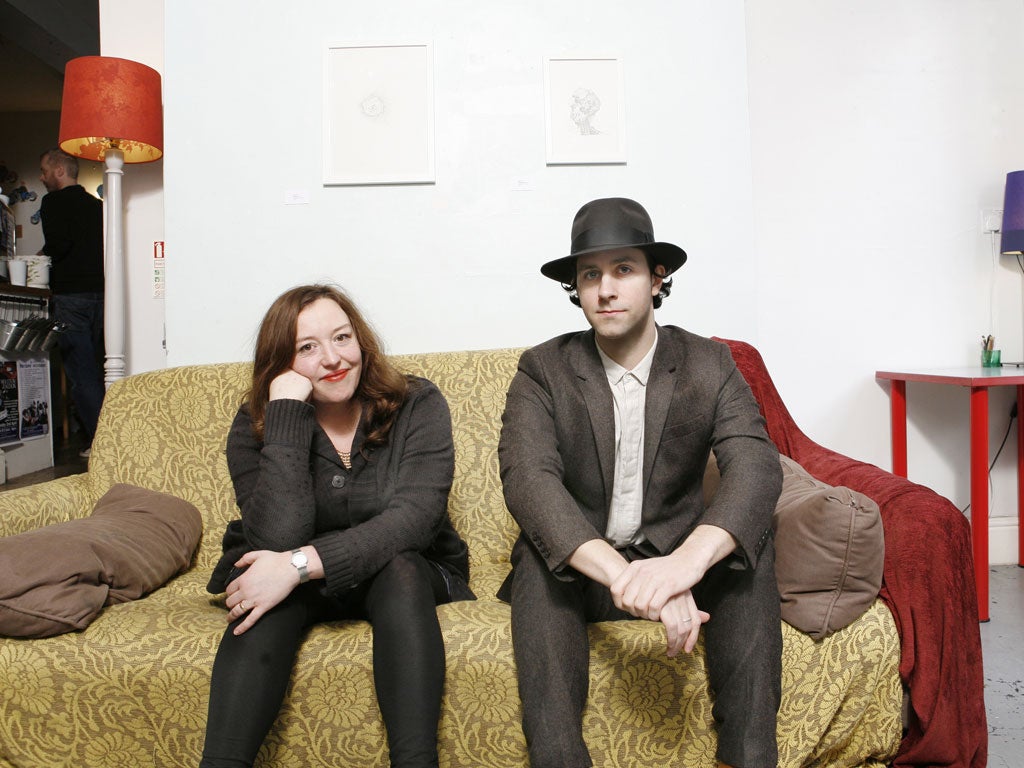Kathryn Williams explores the works and influences of Sylvia Plath in a new light
The American author's tragic life inspired hundreds of artists but Williams doesn't see it that way on her new album

As a 20th century literary figure, Sylvia Plath is almost unique in the number of artists she has inspired through her life as much as her own body of work. For fans of the American author, though, this claim to fame is problematic as the challenges she faced and her tragic end overshadow her undoubted gifts.
A new album from Kathryn Williams goes some way to rectify this disconnect by drawing on Plath’s key work, The Bell Jar, written after Plath had come to the UK to study before starting a family with poet Ted Hughes. The album creates a more rounded picture of the writer than any that focuses on her untimely end aged 30, an apparent suicide in London, in 1963.
She has certainly rivalled Dylan Thomas for biographical intrigue, played in the 2003 film Sylvia by Gwyneth Paltrow, mourned in verse by her former husband in his 1998 collection Birthday Letters, and probably inspiring more songs than the Welsh bard, who also passed away painfully early. Though by focusing on her relationships and personal strife, rather than her spirit and ambition, such portrayals leave her as a two-dimensional character. The first of note was Ralph McTell’s pitying “Sylvia” from his 1972 album Not Till Tomorrow. While the “Streets Of London” writer does allude to poems from Plath’s posthumous collection Ariel, his overall theme is one of loneliness: “Sylvia, does it help if I say I feel for you?” he opens.
Indeed, Plath has grown so recognisable as a totem for female pain that she can be simply name-dropped with no further context provided. Most egregiously, her first name appears alongside similarly tragic figures “Marilyn” Monroe and “Judy” Garland in Lady Gaga’s “Dance In The Dark”. More idealistically, she provides a touchstone for dreams of freedom and escape, as on Belle and Sebastian’s eurodisco toe-tapper “Enter Sylvia Plath”. Two years ago American indie poppers Of Montreal released their seventies-sounding Lousy With Sylvianbriar album, inspired partly by Plath’s work.

Band leader Kevin Barnes had retreated to San Francisco to absorb her poetry, returning with dense texts that alluded to dysfunctional families on “Colossus” and came heavily dosed with a sense of fatalism and impending doom. Williams, though, has devised lyrics that directly refer to events in Plath’s semi-autobiographical novel, first published in 1963. The title of her new album Hypoxia, the medical term for a lack of oxygen supply to the body, hints at Plath’s death, though the songs within are about a life lived as fully as possible given constraints at the time.
Williams, now 41, had agreed to contribute songs about Plath to Durham Book Festival’s 2013 celebration of the 50th anniversary of the novel’s publication, so reread the book for the first time since her teens. At the festival, the Newcastle upon Tyne-based artist performed five Bell Jar-linked numbers, yet found the work still had a hold on her, leading the musician to complete an album with four more tracks. Williams listened to interviews where Plath talked and laughed about herself, causing decades-old myths to fall away. “The whole poster girl for teenage angst and suicide overshadows the unblinking way she writes,” she says.
Going back to the text she read in her youth, Williams found a protagonist and style at odds with the stereotypical view of Plath the victim. “I wasn’t prepared for the muscular writing. The shocking, brutal honesty. The modernness,” she says. “If you read The Bell Jar, you realise how ahead of the curve she was. She had a protagonist who was unlikeable, who struggled with the choices available to her as a woman in that time.”

With a series of musically diverse tracks drawing on vignettes from the novel, Hypoxia provides a more rounded view of the author and her work than most previous lyrics. Among them are “Cuckoo” which looks at the book’s protagonist Esther from her mother’s point of view and lead single “Mirrors”, which draws on the recurring motif of reflecting surfaces, most memorably when Esther fails to recognise her own image. All this turmoil can be belied by the singer’s soft vocal, though she has expanded her palette on her 10th solo album, most notably with grinding electric guitars on “Mirrors”.
Williams admits she was not aware of many numbers previously inspired by Plath, apart from Ryan Adams’s eponymous tribute to her from his 2001 album Gold, where he wishes he “had a Sylvia Plath/Busted tooth and a smile /And cigarette ashes in her drink/The kind that goes out and then sleeps for a week”. If anything, remembering that track made her all the more necessary, she explains. “I sort of hate its sentiment. It plays totally into everything I have tried to turn around. I think people have an idea of her, without reading or knowing her. I get similar things where people think they know my music, without ever hearing it.”
Kathryn Williams plays St Pancras Old Church, London, on 8 June, then tours. Her single “Mirrors” is out the same day with album ‘Hypoxia’ out a week later on One Little Indian.
Join our commenting forum
Join thought-provoking conversations, follow other Independent readers and see their replies
Comments
Bookmark popover
Removed from bookmarks